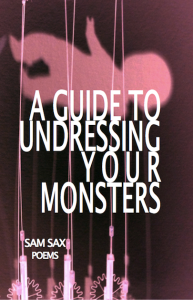–Interview by Diana Clarke
Do you long to believe in Whitman’s transcendent vision but criticize his earnestness? November poet Yanyi Luo suggests laughter; it’s “the sound of power unhinging.”
1. “Song of My Selfie” just slayed me with wonder and paradox. How you honor and also skewer Walt Whitman, make poetry out of shoutycaps while satirizing the hyperbolic (performed) enthusiasm that passes for joy on the internet. The search for a “NEW TRANSCENDENTALISM” feels just as urgent as when Walt was writing, and “a BETTER VERSION OF MYSELF” is still such a seductive fantasy. The American dream is so damn persistent. Do you think the internet changed it?
I think that internet technology has given us with the capability for rapid networked communities. This is most significant for those who have been buried, excluded, or misrepresented systemically and historically. We know that the American dream comes with exceptions, but now it is easier—not easy—to begin dialogues with these communities. Those conversations are making their way visibly into mainstream culture. The outlook isn’t wholly optimistic: the internet is a technology, not a leveling field, and the startup and blogger world reflect familiar demographics of overwhelming maleness and whiteness. Whatever change may come from dialogue is still to be seen. Yet, the internet provides the linguistic and satirical context that allows “Song of My Selfie” to exist. I criticize Whitman’s earnestness, but I also want to believe in it, and I sincerely long for a transcendental being that is self-loving but radical, not indiscriminately containing multitudes but constantly looking to enable them and change with them. Continue reading →
![[PANK]](https://pankmagazine.com/wp-content/themes/pank/assets/images/pank-logo-large.png)

